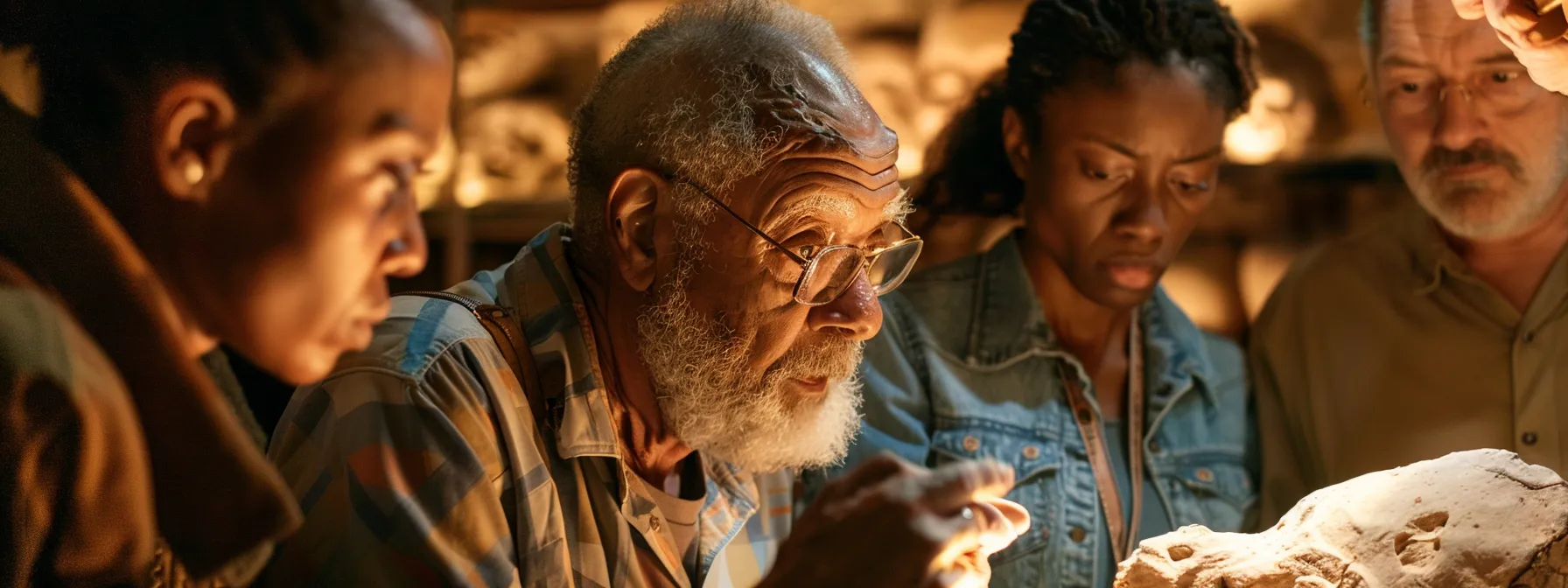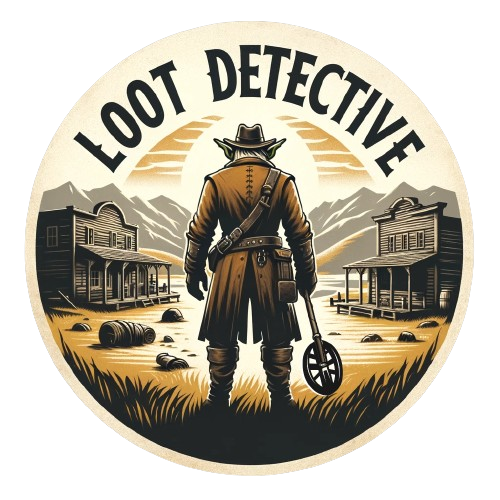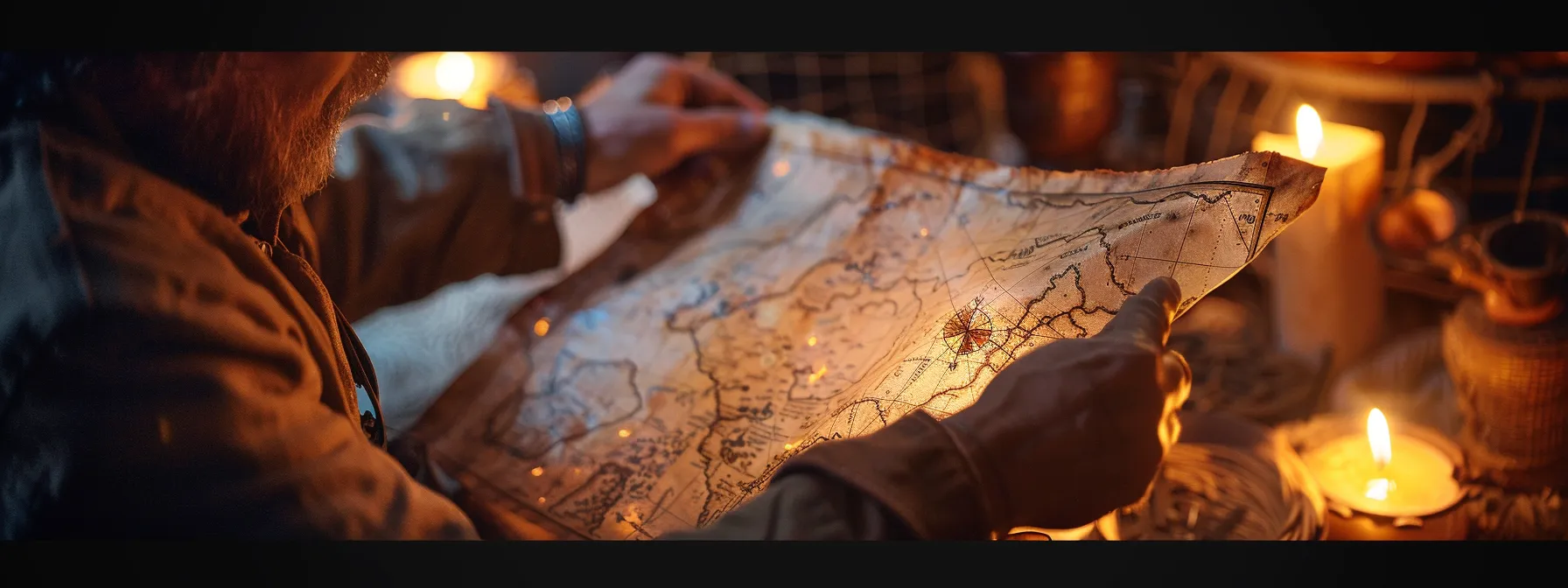

Cultural sensitivity is often overlooked in global treasure hunting, yet it is crucial for success. Many treasure hunters may not realize that understanding local customs and laws can shape the outcome of their expeditions. This article will explore the legal implications of cultural insensitivity, the importance of building trust with indigenous communities, and tips for effective communication across cultures. By addressing these areas, you can avoid common pitfalls and ensure a respectful approach. Engaging with this content will help you navigate the complexities of treasure hunting while respecting anthropology and local traditions, ultimately leading to smoother and more successful metal detection adventures.
Understanding Cultural Sensitivity in Global Treasure Hunting

As a global treasure hunter, recognizing the value of local customs and traditions is essential. You need to respect sacred sites and cultural artifacts, ensuring that your activities comply with local laws. Understanding these aspects will enhance your cultural awareness and contribute to ethical treasure hunting practices. Each of these points plays a critical role in promoting a responsible hunting program that appreciates the beauty of diverse cultures.
Recognizing the Value of Local Customs and Traditions
As you engage in global treasure hunting, recognizing the value of local customs and traditions is vital to your success. Understanding the significance of these practices can enhance your leadership skills, especially when working with local communities. By incorporating local insights and respecting cultural nuances, you can make informed decisions while using your gear effectively, ensuring an ethical approach to your treasure hunting endeavors.
Your intuition plays a crucial role when navigating diverse cultural landscapes. For example, when utilizing satellite imagery to locate potential archaeological sites, being aware of sacred regions and their local meanings can help you avoid unintended disrespect. By acknowledging and valuing local customs, you not only foster relationships with locals but also promote a more respectful and responsible approach to treasure hunting.
Respecting Sacred Sites and Cultural Artifacts
As you navigate the world of treasure hunting, understanding the importance of respecting sacred sites and cultural artifacts is crucial. Each location has its own narrative that connects to the emotions of local communities. By acknowledging these spaces and the history they hold, you show that you honor their significance, rather than merely viewing them as cargo on your treasure–hunting journey.
Your approach should reflect a commitment to trail blazing with cultural sensitivity. This means avoiding sites that are deemed sacred or sensitive to local beliefs and practices. By practicing respect, you not only cultivate goodwill with the community but also enhance your own experience as a treasure hunter. Understanding the emotional impact of your activities fosters a responsible treasure hunting environment that values the heritage of diverse cultures.
The Role of Cultural Awareness in Ethical Treasure Hunting
Cultural awareness plays a significant role in ethical treasure hunting, especially as you explore global landscapes like the Caribbean. By understanding local customs and histories, you can engage with communities more effectively, making your treasure–hunting experience not just pleasurable but also responsible. This approach can open doors for collaboration with local experts, enriching your geocaching endeavors and ensuring respect for the cultural significance of the areas you explore.
When you prioritize cultural sensitivity, you minimize the risk of offending local communities while enhancing your own appreciation for their heritage. It is crucial to remember that each site has its own story and emotions tied to it. By being aware of these factors, you foster goodwill and contribute to a more respectful environment for all treasure hunters in the global arena. This not only benefits you but also preserves the integrity of the sites you wish to enjoy and explore.
Legal Implications of Cultural Insensitivity

International laws governing cultural heritage are vital for treasure hunters. Violating cultural preservation acts can lead to serious consequences, including hefty fines and legal action. Engaging in open conversation with local authorities ensures compliance, protecting both your interests and the habitats of cultural significance. This section will discuss the importance of understanding these legal implications, the repercussions of insensitivity, and the benefits of collaborating with authorities.
International Laws Governing Cultural Heritage
Understanding international laws governing cultural heritage is crucial for any treasure hunter engaged in global exploration. Many countries, including Oregon, have specific regulations that protect cultural sites and artifacts from illegal excavation and damage. By adhering to these laws, you not only avoid fines and legal issues but also contribute to preserving the memory and truth of diverse cultures, ensuring these treasures remain intact for future generations.
As you navigate your treasure–hunting journey, recognizing the concept of cultural sensitivity can enhance your experience. Engaging with local authorities and understanding their legal frameworks will guide your exploration while respecting the cultural landscapes you visit. This proactive approach fosters relationships with communities and ensures that your activities align with preservation efforts, promoting ethical treasure hunting in every location.
Consequences of Violating Cultural Preservation Acts
Violating cultural preservation acts can lead to severe legal repercussions for treasure hunters. In regions like Key West, where the geography is rich with historical significance, any disrespect towards sacred sites could result in hefty fines or even imprisonment. Understanding these laws, particularly when exploring the wilderness along the Pacific Ocean, is paramount to preventing legal trouble and maintaining your integrity as a treasure hunter.
Additionally, violating cultural preservation acts undermines the faith local communities have in treasure hunters. When you do not adhere to these regulations, you risk damaging important cultural landscapes, which can lead to a loss of trust. This not only affects your current expedition but also jeopardizes future opportunities to engage ethically with communities and explore their rich cultural heritage.
Collaborating With Authorities to Ensure Compliance
Collaborating with local authorities is essential for ensuring compliance with legal regulations when treasure hunting. In places like New Jersey, understanding the specific laws governing cultural sites can help you avoid legal issues. By keeping these regulations in mind, you demonstrate respect for the local beauty and integrity of the area while enriching your treasure–hunting experience.
Engaging in open dialogue with authorities allows you to conduct thorough research on cultural sensitivity and preservation practices. This connection can guide your efforts to explore hidden caches and treasures responsibly. Building these relationships not only enhances your knowledge but also fosters trust with the community, paving the way for ethical treasure hunting in the future.
Building Trust With Indigenous Communities

Engaging local leaders and elders is a key step in building trust with indigenous communities while treasure hunting along the coast. Participating in community practices shows your respect for their traditions, while sharing findings respectfully helps to honor their history. These actions not only strengthen your relationships but also enrich your treasure–hunting experience, enhancing your reputation among local communities.
In this section, you will learn how to effectively engage with local leaders, participate in meaningful practices, and share your discoveries in a way that aligns with cultural values. This approach reflects a commitment to ethical practices, showcasing your dedication to respecting the rich history these communities represent.
Engaging Local Leaders and Elders
Engaging local leaders and elders can significantly enhance your perception of the culture you are exploring. By approaching these respected figures with genuine curiosity and attention, you show a willingness to understand their values and traditions. For example, when discussing your treasure–hunting activities, sharing your intentions and asking for their insights can lead to productive conversations that highlight the importance of their culture while minimizing the risk of misunderstandings.
Creativity plays a vital role when connecting with indigenous communities. Consider organizing events where you can collaborate with local leaders to showcase both your findings and their stories, blending your efforts to preserve history. Such initiatives not only honor their culture but also create a platform for dialogue, allowing you to learn more about their perspectives and ensuring your actions align with their values.
Participating in Community Practices
Participating in community practices is a key way to build trust with indigenous communities while treasure hunting. By engaging in local ceremonies or events, you show respect and empathy for their culture, allowing you to gain valuable knowledge that enhances your understanding of their heritage. For instance, consider attending a traditional festival where you can observe customs and even photograph the rich expressions of their culture, creating a personal connection that deepens your relationship with the community.
Understanding the reasons behind these practices can greatly benefit your treasure–hunting efforts. By actively participating, you not only honor their traditions but also position yourself as a considerate visitor. This approach can lead to open conversations and collaborations with community members, enabling you to uncover insights that could guide your exploration. Engaging respectfully ensures a more enriching experience for both you and the communities you interact with, fostering a sense of unity while you pursue your treasure–hunting goals.
Sharing Findings Respectfully
When you uncover treasures, such as a gold bar or unique artifacts, sharing your findings respectfully with local indigenous communities is essential. This not only honors their culture but also opens the door for collaboration and mutual learning. Consider organizing presentations or discussions where you can showcase your discoveries, making it clear how you value their input and knowledge, especially regarding local wildlife and species that may be impacted by treasure hunting.
Additionally, being transparent about your findings encourages trust and cooperation. If your search involves locating areas around sacred sites or known habitats of rare species, communicating openly about your intentions allows you to align your actions with the community’s values. This respectful approach ensures that your treasure hunting maintains cultural sensitivity and strengthens your relationships with the indigenous people you encounter on your journey.
Effective Communication Across Cultures

Effective Communication Across Cultures
Overcoming language barriers is essential for successful treasure hunting. You will learn techniques to interpret non-verbal signals that can enhance your interactions with local communities. Additionally, utilizing cultural liaisons can foster trust and understanding, making your treasure–hunting experience more respectful and effective. These insights will empower you to navigate different cultures with confidence.
Overcoming Language Barriers in the Field
Overcoming language barriers is vital for successful treasure hunting in diverse cultural settings. To bridge communication gaps, consider learning basic phrases in the local language or using translation apps that can help you interact more effectively with local communities. These efforts not only show your respect for their culture but also facilitate smoother exchanges, enabling you to gather valuable insights about the local area.
Additionally, partnering with local guides or cultural liaisons can significantly enhance your experience. These individuals can not only help translate but also provide context about the customs and traditions that shape the community’s perspective on treasure hunting. Establishing these connections fosters trust and collaboration, making your treasure–hunting endeavors more respectful and fruitful.
Interpreting Non-Verbal Signals
Interpreting non-verbal signals is crucial for effective communication, particularly when you are treasure hunting in diverse cultural settings. For example, body language, facial expressions, and gestures can reveal a lot about how locals perceive your presence and intentions. By being observant and understanding these cues, you can foster positive interactions and avoid misunderstandings that could hinder your progress in uncovering valuable treasures.
When you notice signs of comfort or discomfort from local community members, adjust your approach accordingly. For instance, if people seem hesitant to engage with you, it may indicate that they need more time to build trust or prefer a different mode of communication. Recognizing these non-verbal signals allows you to adapt your behavior and ensure a respectful treasure hunting experience that honors the customs of the communities you interact with.
Utilizing Cultural Liaisons
Utilizing cultural liaisons can significantly enhance your treasure–hunting journey by bridging gaps between you and local communities. These individuals possess valuable knowledge of customs and practices that can guide your interactions, ensuring that you approach each situation with respect and sensitivity. When you collaborate with cultural liaisons, you not only show your commitment to ethical practices but also gain access to insights that can enhance your search for treasures.
By engaging cultural liaisons, you can navigate complex social dynamics and foster trust within the communities you explore. For instance, they can provide context for local beliefs, helping you avoid potential missteps that could damage your reputation. This not only enriches your experience but also builds relationships that may open doors to collaborative opportunities in future treasure–hunting endeavors.
Preparing for a Culturally Sensitive Expedition

Before you embark on a treasure–hunting expedition, it’s vital to research cultural norms specific to the region. Understanding these practices sets the foundation for respectful interactions. Additionally, training your team members in cultural etiquette ensures everyone is prepared to engage appropriately with local communities. Finally, adapting your methods to align with local practices will enhance your hunting experience and foster goodwill.
Researching Cultural Norms Beforehand
Before you set out on your treasure–hunting expedition, investing time in researching cultural norms of the region is essential. This preparation allows you to understand the values, beliefs, and social practices of the local community, ensuring that your actions align with their expectations. For example, learning about customary greetings or traditional attire can help you establish rapport and demonstrate your respect for their culture.
Moreover, having a solid grasp of cultural norms can help you avoid faux pas that might offend locals. Being aware of sacred sites, local traditions, and historical contexts not only enhances your experience but also helps you engage more meaningfully with community members. This thoughtful approach will position you as a considerate treasure hunter, fostering connections that could facilitate collaborations and enhance your treasure–hunting opportunities.
Training Team Members in Cultural Etiquette
Training your team members in cultural etiquette is essential for successful treasure hunting. Ensure they understand local customs, greetings, and appropriate behaviors to avoid misunderstandings during your expedition. For example, discussing the importance of respecting sacred sites helps everyone appreciate the significance of these locations and fosters a sense of responsibility among team members.
Your team should also practice active listening and open communication to better engage with local communities. Role-playing scenarios can prepare members for real-life interactions, teaching them how to ask questions respectfully and recognize non-verbal cues. This hands-on approach not only builds cultural awareness but also improves teamwork, ultimately enhancing your treasure–hunting experience.
Adapting Methods to Align With Local Practices
Adapting your methods to align with local practices is vital for a successful and culturally sensitive treasure hunting expedition. Before you start your journey, take the time to understand the customs and traditions of the area you plan to explore. For example, if local communities value certain rituals or when accessing historical sites, respecting those customs will help you gain their trust and respect while enhancing your overall experience.
Your willingness to adjust your treasure hunting techniques can lead to more meaningful connections with indigenous communities. Consider incorporating local knowledge into your searches, such as using culturally significant symbols or patterns to guide your activities. By doing so, you not only show respect to the local culture but also increase the chances of discovering treasures in ways that are ethical and responsible.
Case Studies Highlighting the Importance of Cultural Sensitivity

Case Studies Highlighting the Importance of Cultural Sensitivity
Success stories from respectful treasure hunters showcase how cultural sensitivity can lead to fruitful discoveries and community support. In contrast, lessons learned from cultural misunderstandings highlight the importance of proper engagement during expeditions. Additionally, you’ll see the positive impact on preservation efforts when treasure hunters collaborate with local communities, protecting valuable cultural heritage and fostering goodwill.
Success Stories From Respectful Treasure Hunters
One success story involves a group of treasure hunters who approached a coastal village in the Caribbean with respect for local culture. Before starting their search, they engaged with community leaders, explaining their intentions and seeking guidance. This collaboration not only led to discovering valuable artifacts but also strengthened relationships within the community, showing how cultural sensitivity enhances treasure hunting experiences.
In another instance, treasure hunters exploring a culturally rich archaeological site in South America took great care to comply with local customs. By participating in traditional ceremonies and sharing their findings respectfully, they built trust with indigenous people. This understanding resulted in invaluable local insights and a more fruitful exploration, demonstrating the significant benefits of being culturally aware in your treasure–hunting endeavors.
Lessons Learned From Cultural Misunderstandings
When treasure hunters overlook cultural sensitivity, misunderstandings can lead to damaged relationships with local communities. For instance, a group that disregarded sacred sites while searching for treasure faced backlash, resulting in hostility from locals. This incident serves as a reminder that respecting local customs is crucial to fostering goodwill and ensuring a successful treasure–hunting experience.
An additional lesson learned from cultural missteps involves communication breakdowns. A team that failed to consult with local leaders faced challenges when their search inadvertently disturbed a culturally significant area. This highlighted the need for open dialogue and cultural awareness, demonstrating that proactive engagement with indigenous communities is essential for ethical treasure hunting and for preserving valuable cultural heritage.
The Positive Impact on Preservation Efforts
Engaging with local communities during your treasure–hunting adventures can lead to significant preservation efforts. When treasure hunters prioritize cultural sensitivity, they often gain insights that help protect important cultural sites. For example, by collaborating with locals, you can create initiatives that focus on preserving historical artifacts and sharing knowledge about the area, ensuring these treasures remain for future generations to appreciate.
Moreover, respecting local customs fosters a collaborative atmosphere that encourages community involvement in preservation efforts. When you display genuine interest in the cultural heritage of the regions you explore, you not only enhance your treasure hunting experience but also promote the importance of safeguarding these sites. This mutual respect ultimately leads to stronger partnerships with indigenous communities, resulting in shared responsibility for the preservation of both local culture and history.
Conclusion
Cultural sensitivity is essential for global treasure hunters, as it fosters respectful interactions with local communities and enhances the overall experience. By understanding and honoring local customs, you not only avoid legal repercussions but also build trust and collaboration with indigenous people. Engaging with local leaders and actively participating in cultural practices significantly enriches your treasure hunting endeavors. Remember, ethical practices and respect for cultural heritage not only protect valuable sites but also promote goodwill, ensuring that future treasure hunting can continue responsibly.


